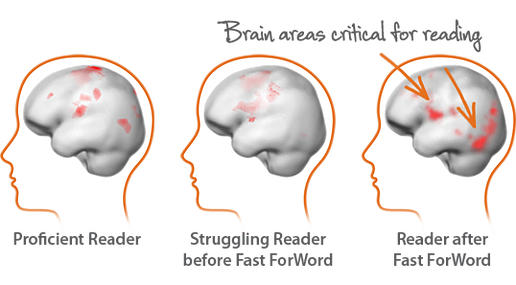 For Dyslexia Awareness Month, we've invited guest blogger, Joanne Gouaux, mother of a bright 10-year old boy with dyslexia, to share her thoughts on why it's so important to #saydyslexia.
For Dyslexia Awareness Month, we've invited guest blogger, Joanne Gouaux, mother of a bright 10-year old boy with dyslexia, to share her thoughts on why it's so important to #saydyslexia.
October is Dyslexia Awareness Month. Does your family say dyslexia? Are your school administrators using the term? Does your child’s teacher know what dyslexia is, and is not? Does the word come up in conversations with other parents whose children may be silently (or not so silently) struggling at home, and at school, without understanding the root of their difficulty?
What is #SayDyslexia?
#SayDyslexia is part of a movement to educate, communicate, collaborate and legislate for better dyslexia services in our nation’s schools. The movement is led by Decoding Dyslexia, a nationwide grassroots parent organization that strives to address the limited access to educational interventions for dyslexia within the public education system. State Decoding Dyslexia chapters work to raise dyslexia awareness, empower families to support their children and inform policy-makers on best practices to offer identification, remediation and support for dyslexic learners.
I belong to Decoding Dyslexia California. I participate in a local chapter within the San Francisco Bay Area. Our group meets once per month to share, learn and help each other find support as our children progress through school. At our last meeting, we watched Read Me Differently, a documentary film that explores how undiagnosed dyslexia and ADHD have affected three generations of Director Sarah Entine’s family. Watching the film as a group brought moments of collective laughter, a few tears and several “aha” moments. Following the film, the group discussed similarities in how learning disabilities affect their own parent-child relationships and family dynamics. The discussion also touched on a deeper awareness -- being a dyslexic learner isn’t something that goes away after grade school.
How to bring the #SayDyslexia movement home
Nationwide, parents of dyslexic learners share a common struggle with a physically invisible learning disability. This often leads to misunderstandings in school and at home about motivation, effort and sadly, a child’s ability to learn and experience their own success. These struggles can lead to anxiety from repeated misunderstandings. Even after a learning difficulty is formally identified by name, reoccurring stress arises from the demands of daily life at the intersection of school, work and homework.
These guidelines can help your family reduce some stress over miscommunications:
- Set aside time to talk as a family about how dyslexia effects communication patterns.
- Recognize that incomplete communications, combined with limited time to talk, can be a recipe for misunderstandings and hurt feelings.
- Create a safe place where all family members feel heard, understood and valued.
- Develop a working knowledge of your own strengths and challenges in communication and organization.
- Acknowledge that miscommunications happen.
- Set a tone for family conversations that cultivates acceptance and belonging.
What resources are available for dyslexia?
Dyslexia awareness is only one piece of the #SayDyslexia movement. Action is necessary to advance learning services for dyslexic learners. A willingness to explore possibilities is crucial in finding the best programs, tools and strategies for dyslexic learners to access education. It’s also important for fellow parents to know that their dyslexic learners may be entitled to publicly funded accommodations and resource services under the law.
There is hope. Help exists. Parents need to know how to ask for the right help, and where to find it.
School can be an enjoyable place for dyslexic learners when paired with specific instruction and supports. All learners benefit when schools offer teachers opportunities for professional development, learning disability enrichment training, along with tools to support learning within the classroom. Reading Assistant is a tool that helps readers build fluency and comprehension with the help of a supportive listener, using speech recognition technology.
School districts can support dyslexic learners by providing evidence-based reading interventions. Fast ForWord is an evidence-based program designed to address the foundational weaknesses that hold so many dyslexic learners back -- areas visible on brain scans as different from those who are typical readers.

In fact, research on Fast ForWord has shown how the brains of those with dyslexia are actually rewired to more typical patterns after using the Fast ForWord intervention, and this translated to gains in reading skills as well.
There is no shortage of accommodation options schools can offer struggling learners to keep pace and participate in challenging grade level assignments.
A few examples of school accommodations include:
- Access to tools such as audio books and assistive technology programs for reading, writing and math.
- Simple assignment and lesson modifications.
- Resource support services to help students learn effective skills and strategies to become independent learners.
- Many dyslexic learners also have other learning differences for which schools can address and support.
Together, parents have the power to unite professionals, children, educators, experts, and policymakers to advance awareness, understanding and services for dyslexic learners. Use your voice. #SayDyslexia
Resources
Find your Decoding Dyslexia state chapter
Read Me Differently documentary film


Comments
Information on dyslexia is
We agree and we will! Thank
Fast forward sound like it
Hi Lisa, thanks for your